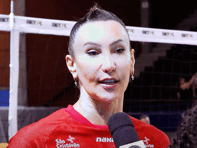The real story that Bob Costas won't discuss — because NBC invested $900 million in broadcast rights for Beijing and had to deliver a feel-good Olympics for their advertisers — is the explosive dimension of athlete activism before the Games. Jacques Rogge won't discuss it either. But as IOC president, Rogge was surely involved in pre-Games defusing of a dangerous and complicated situation that involved a number of countries. It was international sports realpolitik at its best.
The real story that Bob Costas won't discuss — because NBC invested $900 million in broadcast rights for Beijing and had to deliver a feel-good Olympics for their advertisers — is the explosive dimension of athlete activism before the Games. Jacques Rogge won't discuss it either. But as IOC president, Rogge was surely involved in pre-Games defusing of a dangerous and complicated situation that involved a number of countries. It was international sports realpolitik at its best.
At the beginning of the summer, there were widespread calls for a boycott of Beijing, as reported by some media, mainly in the European, blog and indie sectors. Hundreds of athletes were concerned. Several teams, notably Germany, had gone into meltdown over the issue. A couple of open letters were being circulated — one by Joey Cheek's Team Darfur, the other by Amnesty International and the International Committee on Tibet. The Amnesty letter was addressed to the president of China, calling for an end to China's death penalty and suppression of dissent in China and Tibet. Athletes were risking their careers by flocking to sign the letters — around 200 of them. At least 54 of the signers (I'm not sure of the exact total) were scheduled to compete in Beijing. What to do?
Other facts were also clear: A boycott would be disaster for China's plan to position itself as a top tourist and investment destination. It would be equally disastrous for China to arrest any competing athletes who might protest in public during the Games. A boycott would certainly be disaster for NBC.
Most of all, as German fencer Imke Duplitzer pointed out in a pre-Games interview, a boycott would be disaster for 10,000+ athletes who had trained for four years in hopes of adding a medal to their resume. Most athletes do care about human rights, but they also care about making a living. The 1980 and 1984 boycotts over Soviet human rights had accomplished little but setting back a lot of sports careers. What to do?
As August approached, a flurry of secret negotiations must have gone on, with the Chinese government, the IOC, and Olympic Committees in any countries where teams had exploded with rights issues. Indeed, I'm sure that China and the IOC had anticipated there'd be problems. An off-the-record agreement must have been brokered.
By the time the Games opened, the threat of boycott had vanished like the morning dew. A global parade of teams arrived to compete. China did cancel the visa of speed skater Joey Cheek. But it was a symbolic gesture — as a winter-sports figure, Cheek wasn't going to compete. The 54 competitors who signed the protest letters were allowed to enter China — my guess is that they had to agree they wouldn't do any overt protests during the Games (i.e. signs in front of TV cameras). A few — notably Imke Duplitzer — declined to march in the opening ceremonies as a protest. But she was still allowed to compete.
Everybody got down to business, which was a feel-good Olympics with enough product placement to make all parties happy.
Now NBC is trying to get back some shreds of news-reporting credibility by mentioning a human-rights uproar that was finessed before the Games began. Rogge is too much of an old-school European diplomat to do more than smile politely and put Costas in his place.
As an aside, I'm baffled by the fact that this same story fell through the cracks with most of the LGBT media. How could they miss the mentions, in some mainstream media, that three of our own out Olympic athletes were right in the middle of the uproar? My own reports on this story, during the Games, went mostly unnoticed. It's nice to see our media going OMG about Matthew Mitcham and his gold medal. But gee, I thought that activists were supposed to be heroes too.
Imke Duplitzer, out lesbian, had the high profile on the German team during its pre-Games meltdown — she was mentioned in CBS News, USA Today, Time, New Republic, Spiegel. (She wasn't profiled by NBC, of course.) Duplitzer was one of the 127 Tibet letter signers. LGBT media also missed mentioning that our two softball players — second baseman Vicki Galindo (who is bi) and lesbian catcher Lauren Lappin — stuck their necks out too. Galindo and Lappin signed Joey Cheek's Darfur letter. Like Duplitzer, they were allowed to enter China and compete.
All three women now have Olympic silvers on their resumes. But in my book, they also get platinum medals from the universe for risking their careers the way they did.







































